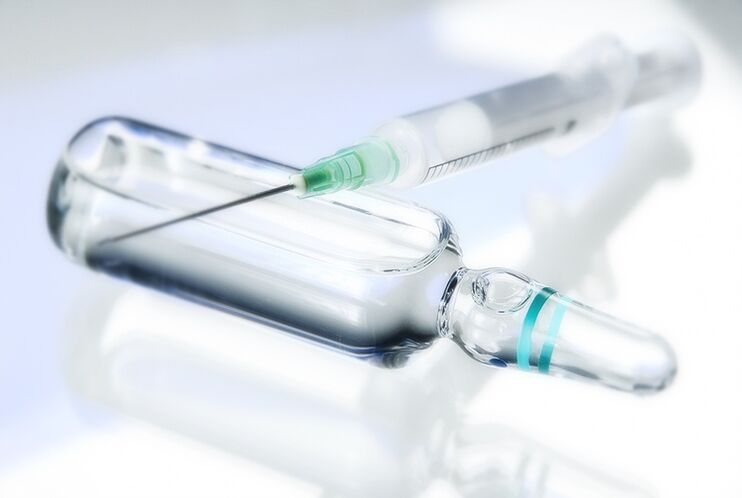Prostatitis is an inflammatory disease of the prostate gland. As with any inflammation, the main treatment of prostatitis is conservative therapy. There are many drugs, for the appointment of each of them there are indications.
Tablets for the treatment of prostatitis
Taking tablet forms of drugs is the main way to treat prostatitis. Indications for such therapy are as follows:
- Pain during urination;
- Difficulty urinating;
- A feeling of fullness in the pelvis;
- Pain in the perineum;
- Prostatorrhea or spermatorrhea;
- Increased nocturnal diuresis;
- Sensation of incomplete emptying of the bladder.
Note! In general, any symptom of acute or chronic prostatitis is an indication for the appointment of certain groups of drugs.

Types of pills for prostatitis
Depending on the type of prostatitis, its forms and main manifestations, the doctor may prescribe one or more of the following drugs:
- pain relievers;
- antibiotics;
- phytopreparations;
- antispasmodics;
- immunomodulators;
- alpha blockers.
Each of these groups has many members.
Pain relievers
These drugs inhibit the main enzymes of inflammation, thereby disrupting its pathogenesis. The reduction of the inflammatory process leads to a decrease in the swelling of the tissues, which no longer press the urethra and nerve endings.
In this way, the pain syndrome is stopped.
Painkillers are prescribed if prostatitis is accompanied by constant or periodic pain.
antibiotics
Antibiotics are necessary if prostatitis is caused by the action of pathogenic microflora.
These drugs act on the etiological factor of inflammation, suppressing the infectious process in the tissues of the gland. Broad-spectrum antibiotics or drugs to which these microorganisms are sensitive are prescribed.
It is essential that! Antibiotics may also be prescribed for non-infectious prostatitis if the enlarged prostate is pressing on the urethra. Due to a violation of the outflow of urine, the development of cystitis and pyelonephritis is possible. Antibiotics are prescribed to prevent these diseases.
Phytopreparations
Phytopreparations, thanks to plant bioflavonoids, vitamins and amino acids, act in a complex manner. They are able to reduce inflammation, relieve spasm of smooth muscles, improve tissue trophism and increase immunity. However, they do not always have sufficient strength, which is why they are prescribed together with other drugs.
Antispasmodics
Medicinal substances from this group have a myotropic effect and relax the smooth muscles. Because of this, the tone of the prostate and urethra decreases, urinary retention stops and pain decreases.
In addition, antispasmodics reduce vascular tone, which improves prostate tissue trophism and accelerates its regeneration.
Immunomodulators
These drugs are able to stimulate the body's defenses. They increase cellular and humoral immunity, which is important for fighting inflammation.
It is essential that! Immunomodulators should not be prescribed for autoimmune prostatitis. This form of inflammation is caused by immune cells attacking the glandular tissues. This group of drugs will only make the situation worse.
Alpha blockers
The principle of action of these drugs is similar to the action of antispasmodics. The difference is that they reduce the tone of the smooth muscles by affecting the nerve endings.
Note! They have more side effects, which is why this group of drugs is prescribed for severe obstructive or pain syndrome.
Comparison table of prostatitis tablets
| A group of drugs | Mechanism of action | Indications for use | Side Effects |
|---|---|---|---|
| Pain relievers | Reduce inflammation and compression of nerve endings. | Expressed pain syndrome. Pain during urination or ejaculation. | Thrombocytopenia, gastric and duodenal ulcer, interstitial nephritis. |
| antibiotics | Kill the pathogenic microflora or block its reproduction. | Infectious prostatitis, proven microbial etiology of the disease, obstructive syndrome. | Suppression of own microflora, damage to liver cells, hematological disorders. |
| Phytopreparations | Reduce inflammation and spasm, improve tissue trophism. | In any form of prostatitis as an additional treatment. | Allergic reactions. |
| Antispasmodics | Alleviation of smooth muscle spasm. | Obstructive phenomena, urinary retention, pain syndrome. | Dizziness, tachycardia, lowering of blood pressure. |
| Immunomodulators | Increase the body's own immunity. | Any form of prostatitis, additional drugs. | Allergic and autoimmune reactions. |
| Alpha blockers | Reduction of spasm of the smooth muscles of the prostate, improvement of trophic. | Pronounced obstructive syndrome. Acute phase of inflammation. | Tachycardia, decreased blood pressure, dizziness, headache. |






























